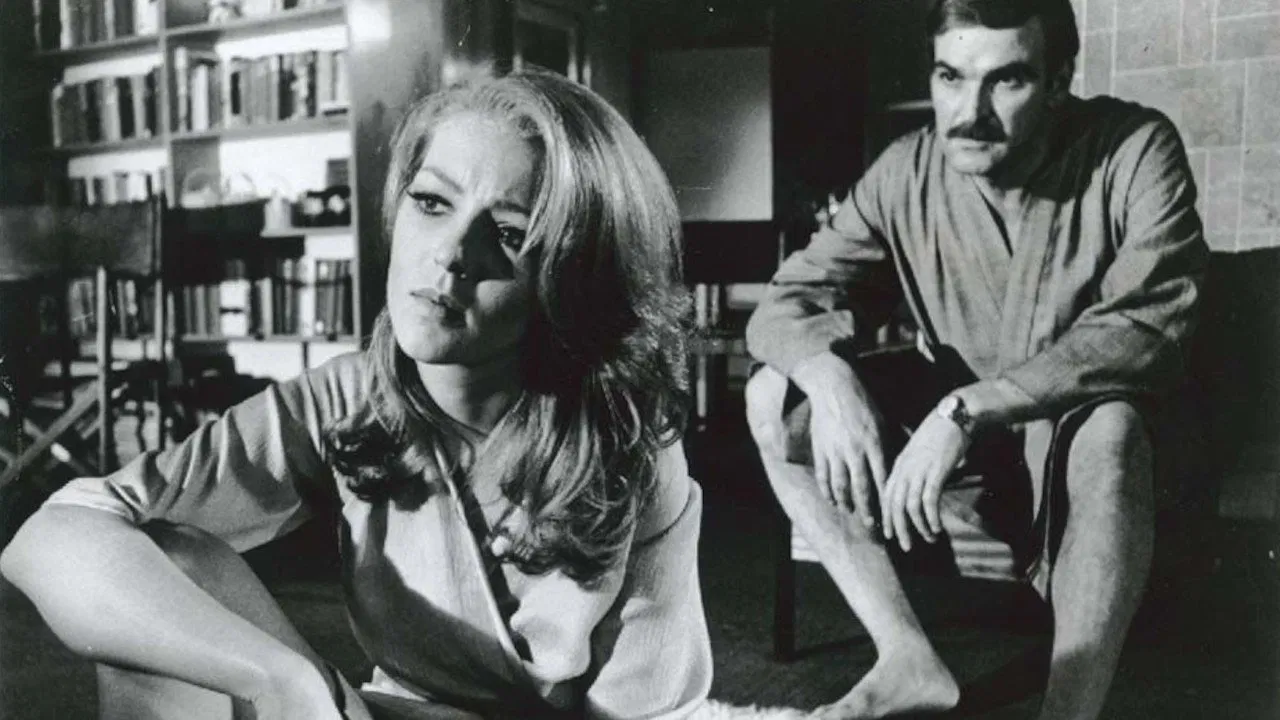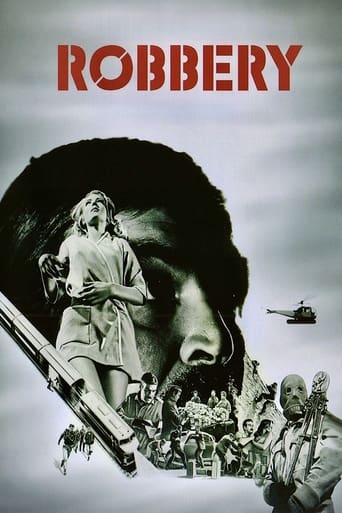

just watch it!
... View Morebrilliant actors, brilliant editing
... View MoreThe best films of this genre always show a path and provide a takeaway for being a better person.
... View MoreOne of the film's great tricks is that, for a time, you think it will go down a rabbit hole of unrealistic glorification.
... View MoreThe curse of the Train Robbers is as effective in its own way as that of King Tut.Most of them did long spells of bird,a disproportionate number of them have died early,at least one of them has been the victim of a gangland killing,many of the others have served heavy sentences since. Not perhaps the life of Riley they envisaged back in 1963......and all because they had too much poppy. Taking about 150 grand apiece(maybe £3million today) made them seriously rich and a target for fellow villains who bled them dry for "protection" and finally grassed them up. They were awash with readies,bags of it were left in locations all over southern England to be found by delighted punters who either handed in to Old Bill or didn't. Faced with all that money,many plans went right out of the window and "Robbery" is the story of a successful crime that went wrong after they'd done the hard bit. Mr Stanley Baker is excellent as the man who keeps his head whilst all others around him are losing theirs and getting nicked.All the same,he is preparing for a lifetime of looking over his shoulder. It is the only movie I have ever seen that even remotely reflects the scintillating danger of the high - speed car chase and the excitement experienced by both the hunters and the hunted.It also makes crystal clear that serious professional criminals have absolutely no qualms about killing or maiming anybody unfortunate enough to be standing between them and freedom,be they coppers or schoolchildren. Robin Hood and his Merry Men these geezers weren't.Although they denied being involved in the robbery,all the main instigators have happily dined out on tales of their derring - do that night in Buckinghamshire 45 years ago ever since.It's worth reflecting that if Mr Jack Mills the engine driver they so brutally attacked had died,they might well have been hanged. But these good south London boys who no doubt loved their old mum all ended up doing a 30 which certainly served to discourage the others as there hasn't been a Mail Train blag since. "Robbery" is a fairly pedestrian semi police procedural enlivened only by the action set - pieces.Only Mr Baker makes much of an impression in the acting stakes,the other main roles are comfortably enough filled but it's coppering and villainy by the numbers for the most part.
... View MoreA very well made near-reconstruction of the Great Train Robbery, taut, brilliantly directed and acted, with excellent casting.Stanley Baker was on top form for this film-such a tragedy that he died so young-and so are the rest of the cast, which includes many 1960s British film stalwarts, such as Glynn Edwards and Barry Foster.It should be remembered that many of the details of the preparations by the "firms" who carried out the real GTR, only came out in later books, so the very realistic pre-the big robbery story lines in this film were, it turned out, not surprisingly, very accurate: the robbery to finance the big job, the pulling together of a team of top criminals etc.In all not one to be missed, whenever it is shown on TV.
... View MoreRobbery is for me a semi-documentary / thriller based on the Great Train Robbery of 1963. The location of the actual heist, on a bridge crossing a country lane bears similarity to the real robbery. The film moves around much of 60s London in the first part, during which time the gang are robbing to gain funds, plus planning the main robbery. The gangs' meeting on the terraces during a Leyton Orient match is well screened; Stanley Baker becomes so heated during their discussion he misses a great run and shot against the crossbar shown from the pitch! As for the central characters, Stanley Baker superbly plays "Mr Big" Paul Clifton, who is a character that the viewer never quite gets to know the limits. For example he tells the gang "we don't need guns, the police don't carry them"; later his wife finds his revolver at home, when quizzed he says "the gun is because I not going back inside (prison)".William Marlowe cleverly plays Clifton's "number 2" Dave Aitken, who is clearly "nice cop" versus Clifton's "bad cop" in terms of running the gang.As with the real train robbery, the gang make a successful robbery; however mistakes made during hideway contribute to their eventual capture. Not least when their contact who "cleans up" the getaway vehicles is apprehended at an airport leaving the UK with about £50K stuffed up his coat - his capture enables the police to set up a successful trap for the rest of the gang.The ending of the film is probably a slight movement forward from many 1950s movies where the gang are all caught - the ending to Robbery slightly leaves the viewer guessing. This is a film for enthusiasts of films of past years, who may like to spot London landmarks.
... View MoreInteresting flick that starts out in thumping swingin' sixties style, the opening half-hour is all class as a meticulously planned diamond heist is carried out by a cool gang of sharp-suited sixties types, followed by a storming car-chase round the streets of London. The fact that this car chase is sparked by there just happening to be a police car passing by as the gang transfer from their van to a getaway car is a clue as to what is to follow - rather reliant on coincidence, and some appalling dialogue, the rest of the film is a little disappointing but never less than reasonable crime-action story, full of faces familiar to UK TV viewers, including a young and sprightly looking George Sewell, and a baby-faced Robert Powell, before his Italian Job work and way before his eighties Hannays. Speaking of the Italian Job, a lot of the style of this film is very similar to that classic, and you can't help but think some of the ideas here influenced the makers of Caine's finest hour (a mini coming down a ramp out of the back of a speeding truck, anyone?). Not a bad film, fascinating for anyone interested in the period and genre, with its cast of faces, selection of classic motors and often hilariously dated dialogue, this is well worth a watch, but no great classic.
... View More